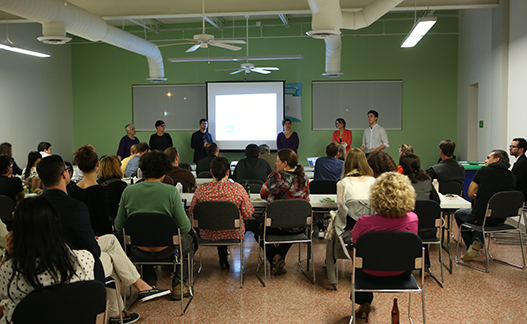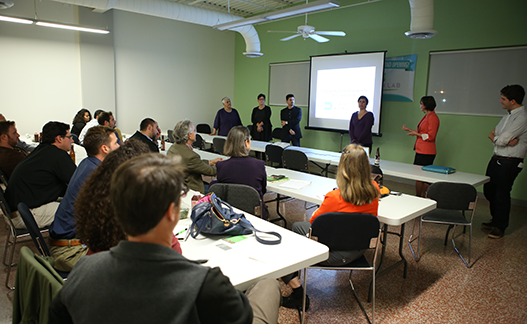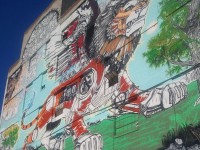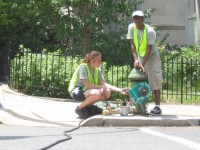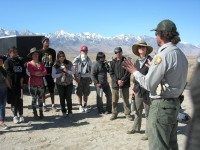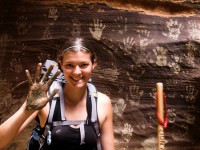Today ioby is pleased to announce the national expansion of our fiscal sponsorship program.
Effective immediately, ioby will offer fiscal sponsorship to informal and unincorporated groups in any community in the United States. To take advantage of ioby’s fiscal sponsorship service, you must have a live ioby campaign. See the details of our fiscal sponsorship policy here. To be eligible to use ioby, leaders must live in the neighborhood where the project is taking place, have explicit goals to make their neighborhoods stronger and more sustainable, make no profit and benefit the public, and have tangible, measurable and measured results.
Why are we doing this?
Since ioby’s beta launch in April 2009, we knew we wanted to serve those who many people call “the grassroots.” During our two-year NYC pilot phase, this meant serving the approximately 3,000 groups that steward green spaces across the five boroughs. According to research by the U.S. Forest Service NYC Urban Field Station, we know that more than half of these groups have annual budgets of less than $1,000 and nearly 70% are led by volunteers. The majority of these groups are informal; that is, they aren’t incorporated and certainly don’t have IRS recognition as a 501(c)3 non profit.
These groups, in NYC and in many other places, are critical managers of green space, open space and public spaces. They’re the unrecognized maintenance partners of plazas who run annual or seasonal cleanups. They start beautification projects. They run programs that activate public spaces and bring vibrancy to our neighborhoods. Most are powered by sweat equity, in-kind donations, small cash donations and small grants. And frankly, there is little incentive for these groups to incorporate and become 501(c)3s themselves.
We also found that ioby is a critical source of startup capital for new social enterprises and civic organizations. About 1/3 of ioby campaigns are explicitly startups and go on to raise additional funding from major gifts and grants.
Since our launch, ioby has provided a limited type of fiscal sponsorship to informal groups of neighbors and unincorporated groups in New York City’s five boroughs and Jersey City. In partnerships with the Miami-Dade County Office of Sustainability and the Memphis Mayor’s Innovation Delivery Team, ioby extended this service to the metropolitan areas of Miami, Florida in 2012 and Memphis, Tennessee in 2013. In these communities, ioby acts as a fiscal sponsor for approximately 60% of these citizen-led, neighbor-funded projects.
We surveyed ioby Leaders in New York, Miami and Memphis. Among other things, we found that providing tax deductions for donations was especially important in the lowest income neighborhoods where we work. (It wasn’t as important an issue for neighborhood leaders from wealthier families and neighborhoods, except when those groups were expecting to receive donations of $500 or more.) We’re serious about our mission to support leaders in low-income communities who are working to make positive change, and we believe that being responsive to about the services that matter to them and to their donors.
Why is it so important to fund these small groups at the hyper local level?
Well, for starters, we know that lack of non-profit status is a barrier to receiving philanthropic dollars, especially grants and large donations, but it may also be a barrier to effectively solving complex problems. In “Cultivating the Grassroots: A Winning Approach for Environment and Climate Funders,” by Sarah Hansen, we learn that environmental organizations with budgets higher than $5 million consistently receive more than half of all philanthropic dollars, leaving just half the pie for more than 80% of organizations. Hansen’s paper smartly argues that allocating funding explicitly for grassroots organizing in front line communities can effectively support national policies by mobilizing demand for change. But this citation from the Urban Institute only includes groups that have filed a 990 or 990-EZ with gross receipts of $25,000 or more, groups that are in many cases 5 to 25 times larger than a typical ioby Leader’s.
If this expert article assessing the landscape of the grassroots is looking to groups 25 times larger than who ioby typically works with, is anyone studying social change at the block level? What about the important work at an even more grassroots level?
Maybe more importantly, we believe that neighborhood leaders are not just underfunded and untracked, but that they’re an overlooked source of innovation to solve local problems that we believe can and already have demonstrably contributed to climate mitigation and resilience at the local level. To the ioby cofounders, this is worth underscoring. In this crisis, we can’t turn away from this important fountain of radical innovation.
Finally, resilience depends on the strength of community fabric. We believe more funding made available to these groups builds capacity and the strength of local networks. You can read more about ioby’s approach to neighborhood resilience here and here.
